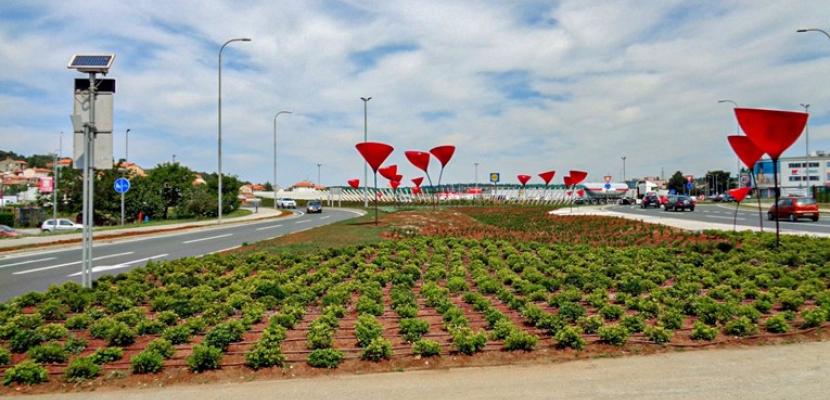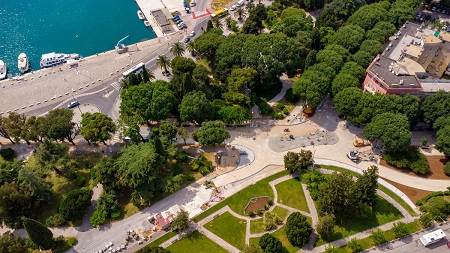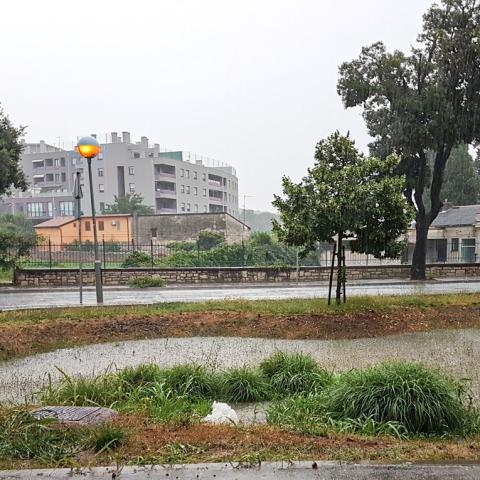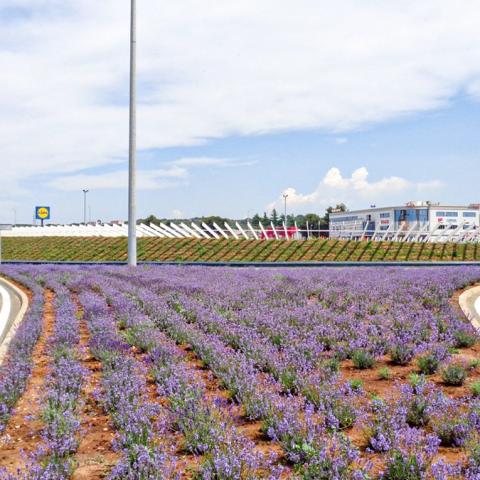
„CREATE” - Rain gardens in the city of Pula

About this good practice
Increasingly frequent heavy rains, storms and floods in many places in Croatia bring major problems in terms of stormwater management, which further threatens the safety of citizens and their property. The city of Pula, through the project CREATE - "Climate REsponses for the AdriaTic region" funded by the Interreg programme Italy-Croatia, received the main prize Adriatic Adaptation Award for an example of GP for the design and implementation of rain gardens, i.e. natural infiltration systems that protect against flooding using natural structures such as gardens.
The purpose of 'rain gardens' is to minimise the amount of rainwater by retaining it on green areas and, after treatment, further infiltrating the terrain. This was achieved by applying NBS stormwater drainage systems. NBS drainage systems have been selected for their adaptation to climate change, multiple financial and economic impacts and socially acceptable solutions in line with environmental protection and biodiversity enhancement. The main beneficiaries of this practice are governmental and non-governmental organisations, gov./dev. agency as well as civil society public.
The value of this GP for adaptation to climate change lies in promoting the successful coastal planning practices identified in Emilia Romagna and Split-Dalmatia County. These coastal plans are based on the Protocol on the Integrated Coastal Management of the Mediterranean - the only supranational legal document for coasts in the world.
Resources needed
Rain gardens are designed for a maximum area of 10 per cent of the total basin area. For example, for 1,000 square meters of road, a rain garden is about 100 square meters that can always be placed alongside a road, park or other green space
Evidence of success
A concrete example is the King Tomislav Square in Pula, where citizens will testify that just a few years ago it looked like a parking lot prone to flooding with every heavy rain. Thanks to the rain garden project, we can say that Pula falls into the category of sponge cities.The circular streams are no longer just ordinary circular streams,they are actually sponges,as are the large number of green oases that are found throughout the city and there are at least 10.
Potential for learning or transfer
Rain gardens act as natural filtration systems, removing pollutants and sediments from stormwater. This reduces the amount of pollutants entering local water bodies and protects aquatic ecosystems. By allowing rainwater to infiltrate the soil, rain gardens also contribute to the restoration of groundwater, thereby maintaining the long-term availability of water. It also increases the visual appeal as it involves the inclusion of green spaces and vegetation that contribute to urban greening and create a pleasant environment for residents and visitors. In Croatia, the responsibility for managing urban waste water currently lies with local authorities, cities or municipalities. The same problems arise systematically - inadequate drainage infrastructure, poor management of floodplains and disregard for their natural functions in urban planning. Giving priority to these activities can greatly help mitigate the risk of flooding in regions and ensure more efficient management of stormwater.
Further information
Images
Website
Good practice owner
You can contact the good practice owner below for more detailed information.


